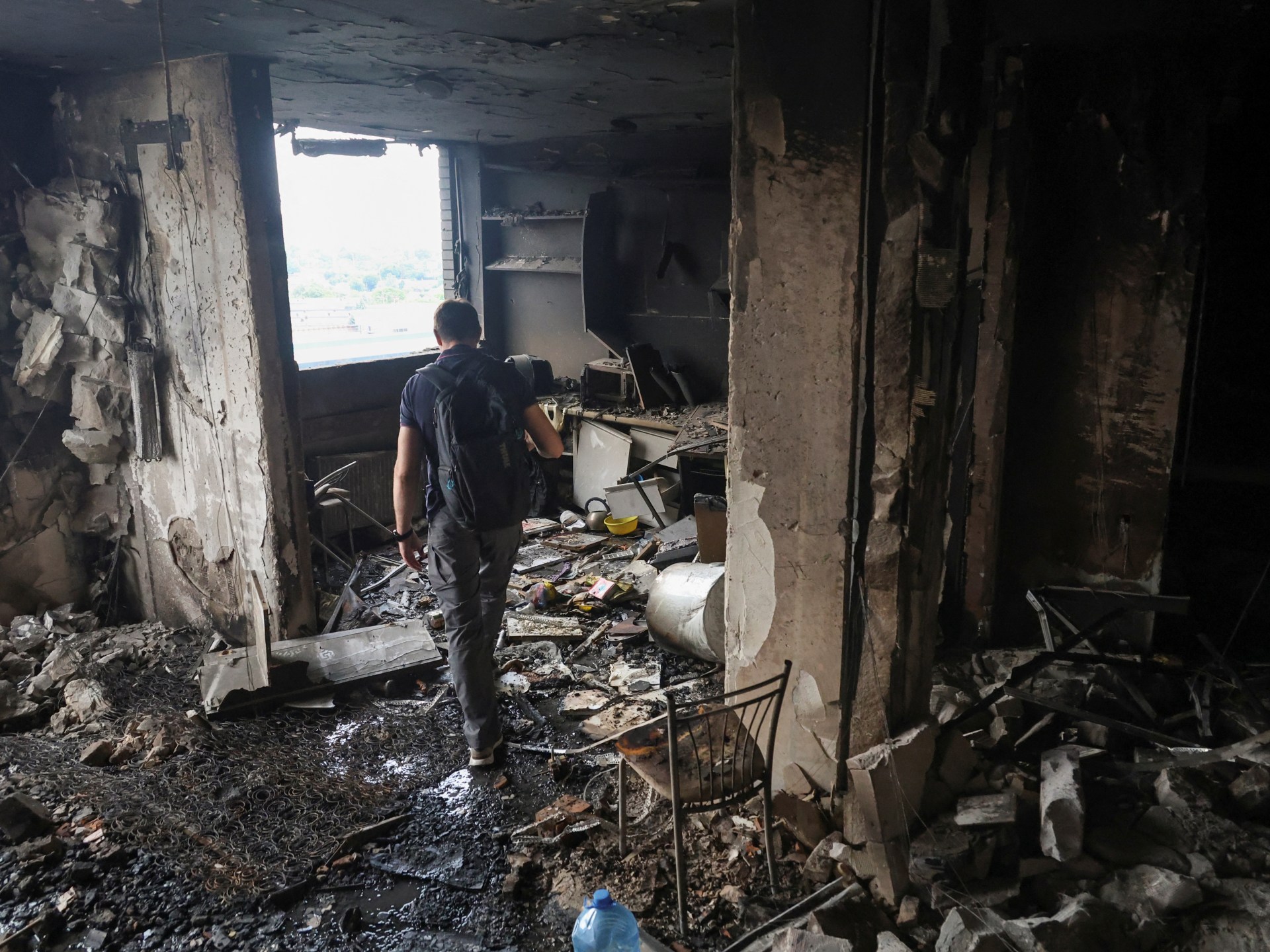Gen Z is often described as the most tech-savvy generation yet—raised on smartphones, fluent in social media, and quick to adapt to digital tools. But many of them are now facing a different kind of challenge: everyday life. From understanding how credit works to cooking a basic meal or navigating housing paperwork, a growing number of young adults are realizing they were never taught the skills that make independent living possible. In response, programs like “Adulting 101” are popping up on college campuses, offering crash courses in everything from budgeting to cleaning.

Why Gen Z Feels Unprepared for Adulthood
Gen Z isn’t short on intelligence or ambition. They’ve grown up navigating complex digital platforms, building online brands, and mastering tools their parents barely understand. But when it comes to foundational life skills—managing money, cooking, doing laundry, or understanding a lease—many young adults are finding themselves unprepared.
This gap isn’t about laziness or lack of effort. It’s structural. Schools have shifted away from teaching practical subjects like home economics, and many parents, in trying to protect their children, have inadvertently limited opportunities for them to learn by doing. As psychologist Jean Twenge notes, “They’re less likely to learn how to do adult things as high school students.” This trend has left a generation highly educated but under-equipped for day-to-day independence.
Programs like “Adulting 101” at the University of Waterloo and Toronto Metropolitan University are now stepping in to bridge that gap. These workshops cover everything from folding a fitted sheet to understanding interest rates. Students like Aldhen Garcia and Bella Hudson have openly shared how vital these skills are—and how little of them they were taught in school.
Twenge ties this preparedness gap to the rise in helicopter parenting and the increasing number of young adults living with their parents well into their twenties. Without early experience in managing personal responsibilities, many enter adulthood unsure of how to handle even basic tasks. And this lack of autonomy has real consequences. A 2023 review in the Journal of Pediatrics found a direct link between missing life skills and poor mental health outcomes among young adults.
The Role of Schools and Families in the Skills Gap
For decades, school systems have prioritized academic achievement over real-world preparedness. While subjects like algebra and world history are important, they’ve often come at the expense of basic life education. Courses that once taught students how to cook a meal, sew a button, balance a checkbook, or understand credit have quietly disappeared from most curriculums. What remains is a system that expects young adults to function independently without ever having taught them how.
This shift didn’t happen in a vacuum. As college admissions became more competitive and standardized testing more dominant, school boards made trade-offs. Practical subjects were dismissed as outdated or non-essential, especially in high-performing districts. Home economics—once a staple—was among the first to go. The result is a generation that can write essays and solve for X but may not know how to navigate a lease agreement or file their taxes. It’s not a matter of capability, but exposure.
Families haven’t fully filled the gap either. Many parents today fall into the “helicopter” or “snowplow” category—over-involved and quick to intervene, often in the name of love or efficiency. But by constantly stepping in, they can unintentionally limit their child’s opportunities to learn through experience. Small things like handling grocery shopping, calling to schedule appointments, or managing a weekly allowance used to be key parts of growing up. Now, in many households, they’re handled by adults well into the child’s late teens or even twenties.
According to Jean Twenge, this lack of early autonomy has long-term consequences. It delays the development of core executive functioning skills—planning, time management, problem-solving—that are essential for adulthood. It also contributes to a growing sense of anxiety among young people, many of whom are thrust into independence without a roadmap. When young adults arrive at college or the workforce already overwhelmed by simple logistics, it’s no wonder they look for structured support in the form of “Adulting 101” courses.
Universities offering these resources aren’t just responding to individual student complaints—they’re addressing a systemic failure. At institutions like the University of Waterloo, the response has been proactive, offering free online toolkits and in-person workshops. These aren’t electives meant to be cute or trendy; they’re practical interventions for students who were never taught the basics. As Pam Charbonneau, Director of Student Success at Waterloo, explains, just knowing that support is available can bring visible relief to overwhelmed students. This isn’t about hand-holding. It’s about catching people up on what should’ve been foundational all along.

Mental Health Tied to Missed Life Skills
The connection between life skills and mental health is clearer than ever. According to a 2023 review in the Journal of Pediatrics, young people who lack basic real-world competencies tend to experience higher rates of anxiety, depression, and emotional distress. This isn’t just about not knowing how to cook or clean—it’s about the psychological toll of being constantly unsure how to handle everyday responsibilities. Without a foundation in basic self-management, even routine tasks can become overwhelming, especially when combined with academic pressure, financial stress, and social expectations. The more unfamiliar adulthood feels, the more likely it is to trigger self-doubt and a sense of helplessness.
For many students, everyday mishaps—burning a meal, missing a payment, or misunderstanding how credit works—don’t feel like normal learning experiences. They feel like evidence that they’re failing at adulthood. Without prior exposure to these situations, there’s no framework for handling them calmly. Instead, small problems snowball. Cooking dinner isn’t just a domestic task; it becomes a source of anxiety when you’ve never learned the basics and are afraid of messing up. Budgeting isn’t just about math; it’s tied to shame if you’re constantly overdrafting or unsure where your money goes. These aren’t isolated frustrations—they contribute to a steady erosion of confidence and mental resilience.
This is why some colleges are integrating practical life skills into their student wellness strategies. It’s not enough to offer counseling or mental health apps if the root stressors remain unaddressed. Teaching students how to manage finances, navigate housing, or cook a few meals isn’t “extra”—it’s preventative. When students feel capable of managing their lives, they’re less likely to spiral into anxiety or burnout. As institutions recognize this, programs like “Adulting 101” are no longer seen as side projects but as essential components of preparing students for the real world—not just academically, but emotionally and psychologically.

Practical Tips for Building Life Skills—No Class Required
You don’t need to enroll in a formal “Adulting 101” course to get a handle on the basics. Most essential life skills can be picked up incrementally through practice, observation, and the right resources. The key is to stop waiting for someone to teach you everything and start treating each small task as a chance to build competency. Start with the things that impact your daily life the most—money, meals, and maintenance.
Budgeting is one of the most high-impact skills to master early. Download a free budgeting app like Mint, YNAB, or PocketGuard and start tracking where your money actually goes. You don’t need to build a perfect system overnight, but you do need to know your income, fixed expenses, and how much you’re spending on things like food or subscriptions. If you don’t know what compound interest is or how credit cards actually work, spend 30 minutes with a reliable source like NerdWallet or the Consumer Financial Protection Bureau. That short time investment can save you from long-term financial stress.
In the kitchen, keep it simple. Learn to cook three basic meals that use real ingredients and don’t require fancy equipment. Things like stir-fry, pasta with vegetables and protein, or roasted chicken with rice and frozen vegetables are good starters. YouTube is packed with beginner-friendly tutorials, but if you’re easily overwhelmed, try recipe sites like Budget Bytes or Minimalist Baker that keep instructions and ingredients straightforward. Cooking for yourself is cheaper, healthier, and builds confidence faster than you might think.
Finally, pick one hands-on skill to learn each month. Change a tire, sew a button, write a professional email, clean your bathroom thoroughly, or read your lease. None of these things are hard in isolation—but avoiding them only makes them scarier when you’re forced to deal with them under pressure. If you live with roommates or family, offer to take the lead on a shared chore or errand and figure it out as you go. Learning by doing is still the most effective way to retain practical knowledge.
A Call to Rethink What Education Should Include
If a generation of young adults is actively seeking out classes to learn how to budget, cook, manage time, and live independently, the question isn’t “What’s wrong with them?” It’s “Why weren’t they taught this in the first place?” The reality is, life skills aren’t optional—they’re essential. Yet, for years, schools and families alike have deprioritized them in favor of academic metrics and extracurricular achievements. That needs to change.
Educational institutions can no longer afford to treat real-world preparedness as an afterthought. Adding financial literacy, digital responsibility, basic home maintenance, and time management into school curriculums isn’t a downgrade from calculus or literature—it’s a necessary addition. These are the tools young adults use every day, often without guidance, and struggling through them in isolation only amplifies stress. Whether through electives, after-school programs, or integrated coursework, teaching life skills needs to become a standard, not a side offering.
Parents also need to rethink what it means to prepare kids for independence. Doing tasks for children in the name of efficiency or protection might make life smoother in the short term, but it often comes at the cost of confidence and competence later on. Letting kids make small mistakes—burn a pancake, get lost in a store, forget their lunch—teaches them more than shielding them ever could. Resisting the urge to over-manage isn’t neglect; it’s training for real life.
The rise of “Adulting 101” classes isn’t just a quirky trend—it’s a red flag that something is missing in how we raise and educate young people. But it’s also a sign of agency. Gen Z isn’t content to flounder—they’re identifying the gaps and asking for practical solutions. That willingness to confront discomfort and seek out tools for growth is exactly what adulthood demands. Now it’s on the rest of us—schools, families, communities—to meet them halfway and make sure the next generation doesn’t have to learn the basics by scrambling to catch up.















Leave a Reply